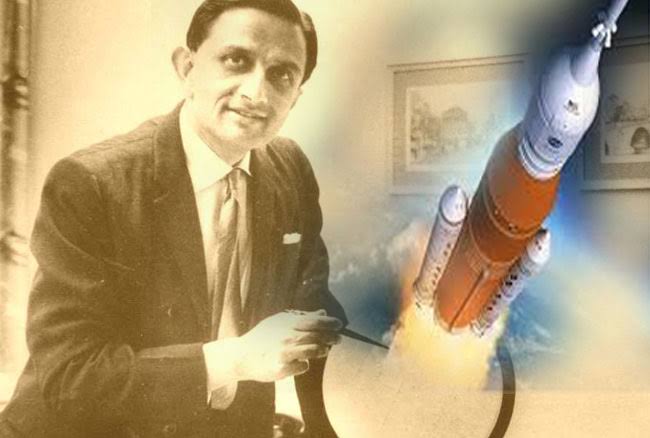

ISRO Chairman S. Somanathan, in his address at Delhi's IIIT convocation, emphasized the crucial role of technology and product development in propelling India's economic growth. He commended the efforts of Elon Musk and his contributions to the global space sector, stating that India should strive to develop its own expertise in fields such as propulsion and material sciences. He also lauded the government's move to involve private players in the space industry, seeing it as a means to fasten development and increase competitiveness. Somanathan encouraged young engineers and scientists to continue learning and adapting in the ever-changing landscape of technology.
ISRO Chairman Advocates for Technological Advancement and Product Development for India's Economic Growth
Recently, ISRO Chairman S. Somanathan emphasized the paramount role of technology and product development in fostering India's economic growth. Speaking at the convocation of Delhi's IIIT, Somanathan commended the contributions of Elon Musk to the global space sector and urged India to develop its expertise in propulsion and material sciences.
Background:
India's space program has made significant strides over the past several decades, with ISRO achieving numerous successes, including the launch of the Mars Orbiter Mission and the Chandrayaan lunar missions. However, Somanathan believes that India needs to accelerate its technological development to remain competitive in the global space industry.
Key Points of Somanathan's Speech:
Top 5 FAQs:
Q1. What are the key areas India should focus on for technological development? A1. Propulsion and material sciences are among the critical areas identified by Somanathan.
Q2. How can private sector involvement benefit India's space industry? A2. Private companies bring innovation, flexibility, and efficiency to the development and operation of space systems.
Q3. What has been ISRO's role in India's technological advancement? A3. ISRO has played a pivotal role in developing satellite technologies, space exploration capabilities, and remote sensing applications.
Q4. What is Elon Musk's significance in the global space sector? A4. Musk is known for his pioneering efforts in reusable rockets, electric vehicles, and private space exploration.
Q5. What are the challenges India faces in furthering its technological development? A5. Access to funding, skilled workforce, and a robust infrastructure are among the challenges that India needs to address.
Conclusion:
Somanathan's address underscores the critical importance of technology and innovation for India's economic growth. By embracing a culture of learning, collaboration, and ambitious goals, India can unlock its potential to become a global leader in technological advancements and establish itself as a significant player in the global space industry.

A remote monitoring camera operated by the US Geological Survey captured stunning visuals of the recent volcanic eruption at Hawaii's Kilauea Volcano. The footage showed lava fountains up to 100 feet high and the raw power of nature as the lava eventually engulfed the camera. This eruption, known as Episode 38, was the latest in a series of eruptions that have been occurring since December last year. However, according to USGS, another episode could take place in the near future.

Indian Prime Minister Narendra Modi virtually inaugurated Skyroot Aerospace's new Infinity Campus in Hyderabad and unveiled their first orbital launch vehicle, the Vikram-I. During the event, PM Modi praised India's advancements in space technology and spoke about the importance of private companies like Skyroot in driving innovation in the space sector. The Infinity Campus, equipped with state-of-the-art facilities, has the capacity to produce one rocket per month, marking a significant milestone in India's private space manufacturing capability. Skyroot Aerospace, founded by former ISRO engineers, has quickly become a prominent player in India's growing space industry, with the successful launch of Vikram-S, the country's first privately built sub-orbital rocket.

We all experience changes in our mood, whether it's feeling happy and content or irritated and moody. But what are the underlying factors that contribute to these changes? This article from Medindia explores the top 10 things that can affect our mood, from physical health to environmental factors. It also provides tips on how to avoid these mood-altering triggers and maintain a positive state of mind. With a focus on promoting overall well-being, Medindia's policies align with the UN's Sustainable Development Goals, making it a reliable source of information for health and wellness.

A recent report by Public Health Scotland has shown a steep increase in flu cases and hospitalizations in Scotland. The numbers have more than doubled from the previous week, with a higher intensity observed in younger age groups. Experts are warning of a long flu season and a new variant of the illness that is spreading more easily. Health Secretary Neil Gray has assured the public that there are enough doses of flu vaccine available in the country.

The observation of National Pollution Control Day on 2 December serves as a timely reminder of India's struggle with escalating pollution levels. The recent years have seen a sharp increase in toxic particles and hazardous emissions, causing severe health issues and environmental damage. The ongoing pollution emergency calls for more stringent regulations, better urban planning, and increased public engagement to mitigate the crisis.

As World AIDS Day approaches, conversations around HIV prevention in India are becoming more open and informed. In particular, there is growing interest in PrEP (pre-exposure prophylaxis), a medicine that offers strong protection against HIV when used correctly. With rising awareness and more accessible sexual-health services, doctors are seeing a steady rise in patients asking about PrEP as a proactive health choice. This signals a shift towards informed prevention and a stigma-free dialogue surrounding HIV.

ISRO has been making continuous efforts to establish contact with the Vikram lander and Pragyan rover, which were put into sleep mode earlier this month, ahead of the lunar night. However, the prolonged spell of cold weather conditions, reaching up to -150 degrees Celsius, has made it difficult for them to wake up. With the sunrise on the Moon's south polar region and their solar panels believed to be optimally charged now, ISRO is hoping to revive the lander and rover and continue with their experiments and studies. The latest update from ISRO is that the plan to reactivate them has been delayed to September 23 due to the extreme lunar weather conditions.

Monsoon season may bring romantic vibes, but it's also a nightmare for contact lens wearers. Rainwater contains bacteria and pollutants that can cause eye infections, especially when wearing contact lenses. Ophthalmologists recommend using glasses instead and practicing good hygiene to avoid irritation and infection.

India's first human spaceflight mission, Gaganyaan, is one step closer to reality as ISRO successfully tested the main parachutes for the mission's Crew Module. The test, conducted at the Babina Field Firing Range in Uttar Pradesh, is part of the qualification process for the Gaganyaan parachute system. The system, which includes 10 parachutes of different types, is designed to ensure the safe and stable descent of astronauts returning to Earth. This milestone test marks a crucial step forward for India's ambitious space exploration goals.

As World Pneumonia Day is observed on November 12, experts are drawing attention to the dangerous link between air pollution and respiratory illnesses. In India, the post-Diwali smog adds to the already high levels of pollution, increasing the risk of pneumonia, particularly among vulnerable populations. While outdoor air pollution is often blamed, experts emphasize that poor indoor air quality also plays a significant role in triggering and worsening respiratory infections. Health professionals are urging for better air quality regulations and precautions to prevent this deadly connection between pollution and pneumonia.